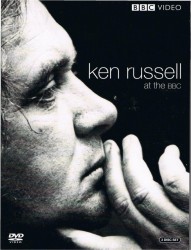EMI continues to issue well-chosen performances by the greatest musicians of the recent past in artist-driven compilations of recordings from the 1930s forward.
Their most ambitious collection was the 2008 issue of the complete EMI audio recordings by Herbert von Karajan in two boxes: the complete orchestral recordings on 88 CDs and the operas and vocals on a second box of 72 discs. In all of these compilations the most up to date transfers from their own archives are utilized making these boxed sets the ultimate source for acquiring and listening to the individual performances by deservedly legendary artists doing what they did best. All of the sets come in neat clam-shell packaging with informative booklets at about $5 per disc.
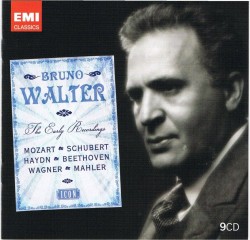
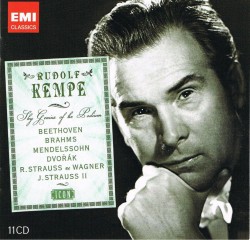 Not as widely appreciated as he well deserved to be was Rudolf Kempe (1910–1976), born in Dresden and in 1929 appointed first oboe of the Gewandhaus Orchestra in Leipzig. He was a master conductor in every sense of the word. An engagement in 1951 by the Vienna State Opera spring-boarded him to international acclaim and he was soon in demand in opera houses and concert halls around the world. He declined the earnest invitation to become music director of Covent Garden. The knowledgeable listener will be, I believe, delighted with the instrumental balances in familiar works which emerge here as ensemble pieces involving every player without the necessity of any spotlighting of a particular instrument or section for heightened effect. The various engineers involved over the many orchestras featured appear to have documented exactly what they heard. I confess that I did not fully appreciate these qualities in the performances/recordings as they were issued over the years. Beethoven’s First, Third, Fifth and Sixth Symphonies (Munich Philharmonic) are followed by the Third and Fourth of Brahms (Royal Philharmonic). One needs only to hear the beautifully turned and polished account of the usual four excerpts from Mendelssohn’s incidental music to A Midsummer Night’s Dream (Royal Philharmonic), particularly the feather-like transparency of the Overture, to know that there is indeed something very special about the conductor. In the four Richard Strauss tone poems, Don Juan, Don Quixote (with Paul Tortelier), Till Eulenspiegel, Ein Heldenleben, and in Tod und Verklärung plus Dance of the Seven Veils (all with the Staatskapelle, Dresden), we again hear the transparency, even in the tuttis, that is one of Kempe’s trademarks. It takes a very rare sensibility to have the closing moments of Heldenleben unfold across the orchestra and bloom rather than merely getting louder. Karajan could do it and so does Kempe. EMI included generous helpings of Wagner, both orchestral and operatic, and two discs of what Beecham termed lollipops, all in full-range correctly balanced sound. This admirable collection, Rudolf Kempe, Shy Genius of the Podium (EMI 629557 2) contains 11 CDs and this listener wishes there were more.
Not as widely appreciated as he well deserved to be was Rudolf Kempe (1910–1976), born in Dresden and in 1929 appointed first oboe of the Gewandhaus Orchestra in Leipzig. He was a master conductor in every sense of the word. An engagement in 1951 by the Vienna State Opera spring-boarded him to international acclaim and he was soon in demand in opera houses and concert halls around the world. He declined the earnest invitation to become music director of Covent Garden. The knowledgeable listener will be, I believe, delighted with the instrumental balances in familiar works which emerge here as ensemble pieces involving every player without the necessity of any spotlighting of a particular instrument or section for heightened effect. The various engineers involved over the many orchestras featured appear to have documented exactly what they heard. I confess that I did not fully appreciate these qualities in the performances/recordings as they were issued over the years. Beethoven’s First, Third, Fifth and Sixth Symphonies (Munich Philharmonic) are followed by the Third and Fourth of Brahms (Royal Philharmonic). One needs only to hear the beautifully turned and polished account of the usual four excerpts from Mendelssohn’s incidental music to A Midsummer Night’s Dream (Royal Philharmonic), particularly the feather-like transparency of the Overture, to know that there is indeed something very special about the conductor. In the four Richard Strauss tone poems, Don Juan, Don Quixote (with Paul Tortelier), Till Eulenspiegel, Ein Heldenleben, and in Tod und Verklärung plus Dance of the Seven Veils (all with the Staatskapelle, Dresden), we again hear the transparency, even in the tuttis, that is one of Kempe’s trademarks. It takes a very rare sensibility to have the closing moments of Heldenleben unfold across the orchestra and bloom rather than merely getting louder. Karajan could do it and so does Kempe. EMI included generous helpings of Wagner, both orchestral and operatic, and two discs of what Beecham termed lollipops, all in full-range correctly balanced sound. This admirable collection, Rudolf Kempe, Shy Genius of the Podium (EMI 629557 2) contains 11 CDs and this listener wishes there were more.
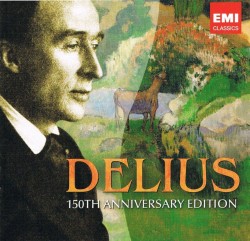 Frederick Delius (1862–1934), for those who may not know, was an English composer who spent his last years in France where he gradually became blind, relying on his amanuensis Eric Fenby to write down the scores as he dictated them. In the pre-LP days the music of Delius was esoteric, the recordings were few and far between and almost exclusively conducted by Beecham on Columbia 78s funded by the Delius Trust which was financed by Delius’ late widow Jelka who had willed her entire estate to the dissemination of her husband’s music (phew!). Beecham was named to have complete authority over every aspect. Some of these Beecham recordings have been assembled, together with others from the 1930s forward, in a Delius 150th Anniversary Edition (EMI 8417527) comprising 18 mono and stereo CDs. Included are critically esteemed performances of concertos, tone poems, operas, choral and chamber music. Conductors include Beecham, Barbirolli, Sargent, Groves, Meredith Davies, Mackerras, Hickox, Marriner, Handley and the aforementioned Fenby. The complete details of this definitive edition with detailed track listings can be found at emiclassics.com.
Frederick Delius (1862–1934), for those who may not know, was an English composer who spent his last years in France where he gradually became blind, relying on his amanuensis Eric Fenby to write down the scores as he dictated them. In the pre-LP days the music of Delius was esoteric, the recordings were few and far between and almost exclusively conducted by Beecham on Columbia 78s funded by the Delius Trust which was financed by Delius’ late widow Jelka who had willed her entire estate to the dissemination of her husband’s music (phew!). Beecham was named to have complete authority over every aspect. Some of these Beecham recordings have been assembled, together with others from the 1930s forward, in a Delius 150th Anniversary Edition (EMI 8417527) comprising 18 mono and stereo CDs. Included are critically esteemed performances of concertos, tone poems, operas, choral and chamber music. Conductors include Beecham, Barbirolli, Sargent, Groves, Meredith Davies, Mackerras, Hickox, Marriner, Handley and the aforementioned Fenby. The complete details of this definitive edition with detailed track listings can be found at emiclassics.com.
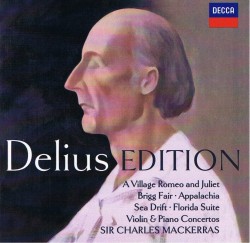 DECCA also has a commemorative edition of Delius essentials in contemporary recordings on eight CDs (4783078) which will satisfy the less committed collector. Check this package on deccaclassics.com.
DECCA also has a commemorative edition of Delius essentials in contemporary recordings on eight CDs (4783078) which will satisfy the less committed collector. Check this package on deccaclassics.com.
